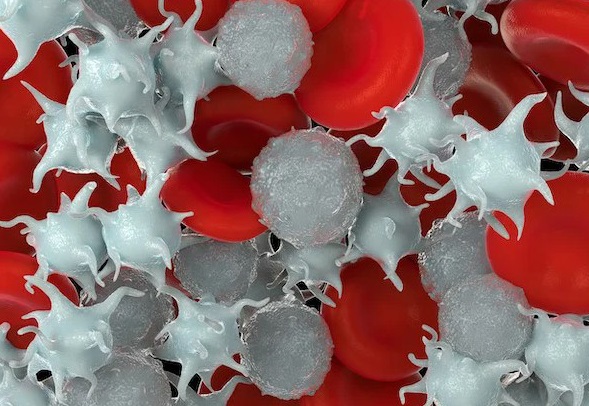Nikhil Prasad Fact checked by:Thailand Medical News Team Sep 26, 2025 4 months, 2 weeks, 3 days, 16 hours, 5 minutes ago
Medical News: A groundbreaking study by scientists from the Virogenetics Laboratory of Virology and the Department of Clinical Immunology at Jagiellonian University in Krakow, along with the Department of Rheumatology and Immunology and University Hospital Krakow, has revealed surprising insights into how blood platelets are involved in the course of COVID-19. Researchers from genXone SA also collaborated in this large project.
 Blood Platelets Found to Play Key Role In COVID-19 Severity
Blood Platelets Found to Play Key Role In COVID-19 Severity
The study investigated the genetic activity within platelets taken from patients hospitalized with COVID-19 pneumonia. Normally known for their role in clotting, platelets also carry small amounts of genetic material in the form of mRNA. This
Medical News report highlights how those genetic codes can change during viral infections, and in the case of COVID-19, they appear to become active players in the body’s immune and healing processes.
Platelets and their unexpected role in COVID-19
The researchers discovered that platelets in infected patients showed increased activity in several important genes. Among these were IFITM3 and TIMP1, which help cells block viruses from entering and replicating. Their consistent activation was found in both mild and severe COVID-19 cases, showing they are part of the body’s antiviral shield.
Other genes that stood out included TREML1 and SPARC, which are linked to reducing excessive inflammation and supporting tissue repair. The HLA-E gene, which influences immune cell activity, was also more active. Interestingly, patients with non-severe pneumonia had higher expression of TREML1, SPARC, and HLA-E, suggesting these genes may help control disease severity. By contrast, those with severe pneumonia showed a more limited genetic response.
What the findings mean for patients
The team also studied how these genetic shifts interact in networks, uncovering strong links to immune defense systems, including natural killer cell activation and interferon responses. This shows that platelets are far more than just clotting agents—they actively contribute to fighting off infections and regulating inflammation.
The study noted that while IFITM3 and TIMP1 were always elevated, the protective benefits of TREML1, SPARC, and HLA-E were largely missing in severe cases. This difference may help explain why some patients experience milder symptoms while others progress to life-threatening conditions such as blood clots and respiratory failure.
Conclusion
This research provides new evidence that platelets may serve as important predictors of COVID-19 outcomes. Their genetic activity not only helps fight viruses but also supports tissue healing and regulates damaging inflammation. By identifying which platelet genes are active, doctors could one day better predict who is at risk for severe disease and develop new strategies to support recovery. These findings also deepen our understanding of how COVID-19 impacts the entire body, not just the lungs.
&
amp;nbsp;
The study findings were published in the peer reviewed journal: Heliyon.
https://www.sciencedirect.com/science/article/pii/S2405844025022911
For the latest COVID-19 News, keep on logging to Thailand
Medical News.
Read Also:
https://www.thailandmedical.news/news/statins-and-raasi-drugs-linked-to-lower-il-6-levels-in-covid-19-patients
https://www.thailandmedical.news/news/covid-19-infections-and-vaccines-causes-elevation-of-amyloid-precursor-protein-which-contributes-to-persistent-headaches
https://www.thailandmedical.news/news/toll-like-receptors-involved-in-covid-19-are-likely-accelerating-a-global-brain-health-crisis
